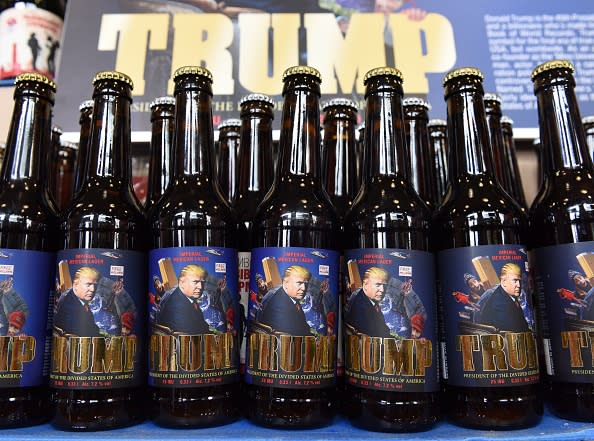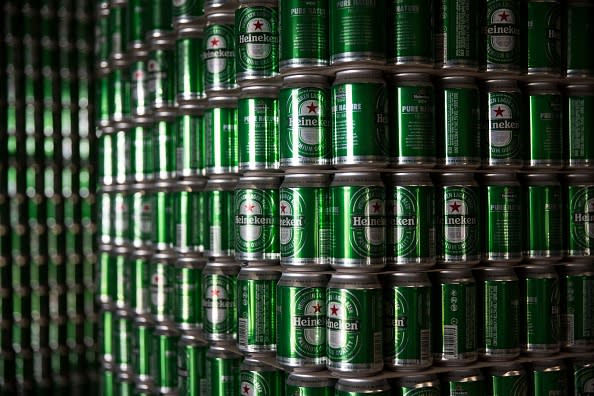How Trump will make your beer more expensive
President Donald Trump said that he plans to impose a 25% tariff on imported steel and 10% tariff on imported aluminum. The announcement sent markets tumbling more than 500 points on Thursday.
The proposal has left beer and beverage companies wary. More than half of the beer produced every year in the U.S. is packed in aluminum cans or aluminum bottles. The beverage and brewery industry has been relying on imported aluminum to make 96 billion cans annually. Cans account for about 9.76% of the brewers’ overall production cost of beer, according to a report from John Dunham & Associates last June.

“The higher cost of cans resulting from a potential tariff on aluminum would be passed through to consumers as part of the manufacturer’s price of beverages,” the report writes. John Dunham & Associates estimates that a 10% tariff on aluminum will lead to a 0.2% increase in beer price.
Domestic aluminum may not be able to fill the gap

Major beverage and beer companies including PepsiCo (PEP), Coca-Cola (KO), Heineken and Molson Coors Brewing (TAP) have written Trump to urge him to restrain from imposing tariffs on aluminum. According to the Aluminum Association, a trade group representing aluminum producers, 84% of the primary aluminum used in can stock is imported. A 10% tariff aluminum will create a new $347.7 million tax on America’s beverage industry, according to a statement from Beer Institute on Thursday.
The U.S. has been running an aluminum deficit for years, and domestic producers may not be able to fill the gap as soon as Trump hopes. Data from U.S. Geological Survey’s National Minerals shows aluminum imports increased about 17% from 2016, while production of primary aluminum decreased for the fifth consecutive year to the lowest level since 1951, mainly because of rising labor, energy costs and global competition.
Details of Trump’s plan were not revealed on Thursday, but besides tariff, if he follows U.S. Commerce Secretary Wilbur Ross’ recommendations to limit the sum of aluminum imports to 86.7% of their 2017 level, U.S. aluminum producers will have to scramble to fill that gap.
“We don’t see that happening in the future,” Beer Institute President and CEO Jim McGreevy told Yahoo Finance. “The tariff has caused uncertainty for all users. We question whether that uncertainty in supply can be filled by plants that are not up and running and won’t be up and running for quite a while.” He hopes to work with the Department of Commerce to get tariff exemptions for cans.
Krystal Hu is a reporter for Yahoo Finance. Follow her on Twitter.
Read more:
Why Amazon cut hundreds of jobs

